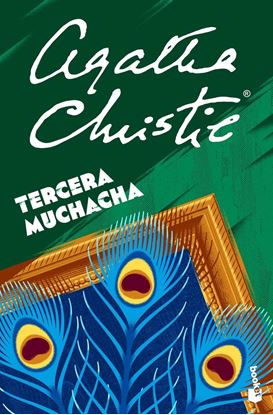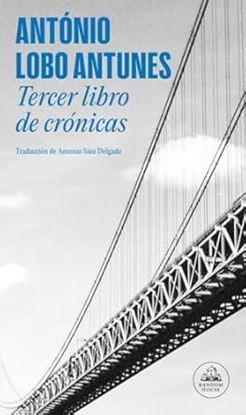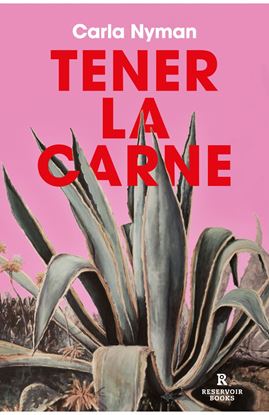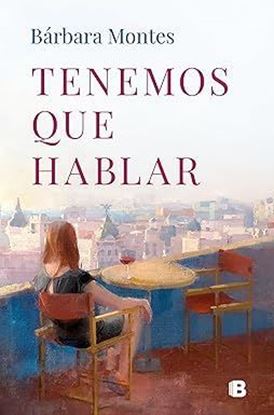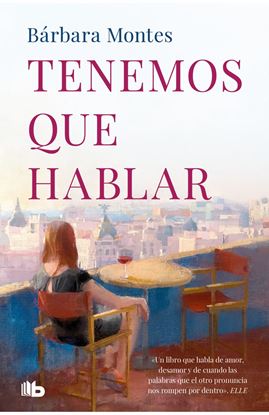

TERRA NOSTRA (50 ANIV.)
Felipe II, el "Defensor de la Fe", es el soberano más poderoso del orbe. Largos años ha luchado contra judíos, musulmanes y protestantes, y sus súbditos han sufrido excesivos impuestos, pestes, intolerancia... Su reinado agoniza en tanto nace un mundo diferente: los castillos son sustituidos por las urbes, los campesinos por los villanos, los príncipes y reyes por los burgueses; falsos profetas dominan los caminos y hablan de un renacimiento. Felipe está cansado y enfermo; el arrepentimiento de sus excesos lo lleva a recluirse en el lugar que ha mandado construir para ser su última morada: El Escorial.
1,750
TERCERA MUCHACHA (BOL)
Tres muchachas comparten piso en Londres. La primera es una fría y eficiente secretaria; la segunda, una talentosa artista; y la tercera sale en busca de Hércules Poirot, interrumpiéndole durante su desayuno de brioche y chocolate caliente, para confesarle que es la asesina de sus otras dos compañeras. Después desaparece misteriosamente.
En medio de rumores sobre armas de fuego, cuchillos automáticos y rastros de sangre, Poirot deberá emplear al máximo sus células grises para establecer, sin evidencia alguna, si la tercera muchacha es efectivamente culpable.
850
TERCER LIBRO DE CRONICAS
Este Tercer libro de crónicas reúne algunas de las crónicas que António Lobo Antunes escribió entre 2002 y 2004. El oficio de escritor y las dudas que lo asaltan («¿seré capaz?»), su estancia en Angola, la infancia «en una casa con una acacia», la familia(«estos seres extraños en los que se prolongan nuestras facciones»), el amor, lo efímero y lo eterno son algunos de los temas recurrentes de sus novelas, que desarrolla también en las crónicas. Los múltiples registros del autor, la sutileza de su humor, su virtuosismo y el arte de llevar al lector de la sonrisa a la emoción extrema hacen que estos textos se lean con una enorme facilidad.
1,450
TENER LA CARNE
Una chica ha matado a su novio con la ayuda de su madre. Es verano y el calor aprieta en la costa de Almería mientras pasean su cadáver en una silla de ruedas. Tomando el sol y bebiendo cócteles en garitos de playa acompañadas del muerto, la hija llama insistentemente al juez que tal vez podría instruir su caso para ponerle las cosas fáciles: son culpables y está dispuesta a contarle con todo detalle cómo lo han matado y por qué. Pero el juez no contesta y salta el buzón de voz.
La premiada dramaturga y poeta Carla Nyman debuta en la novela con este delirio almodovariano, un machetazo revestido de risa histérica que lanza bruscos interrogantes sobre el deseo, la feminidad, los celos y el amor.
800
TENEMOS QUE HABLAR (OF2)
Imaginemos a una mujer cualquiera, con un matrimonio apacible y un hijo preadolescente. Con una vida más o menos feliz, más o menos normal. Hasta que un día su marido le pide permiso para acostarse con otra. Sólo una vez, le promete. Y ella le dice que sí.
Sin embargo, la misma noche en que él va a ver a su amante, ella queda con una amiga y le cuenta lo que está pasando. Es entonces, copa de vino en mano, cuando se da cuenta de que no siente celos ni está enfadada. Mucho peor: le da exactamente igual.
Con un estilo lleno de ternura y humor, esta novela trenza la historia de dos mujeres en momentos muy distintos: Tima, que lleva demasiado tiempo viviendo en la indiferencia, y Eva, una profesional de éxito con alergia al compromiso hasta que un día conoce a alguien que le hace replantearse todo.
Bárbara Montes nos habla de las relaciones en la vida real, sin edulcorarlas, y de ese momento en que te das cuenta de que todas las reglas que te habías marcado y los planes que habías hecho en realidad no sirven para nada. Porque el amor de verdad es inoportuno, difícil y a veces absurdo. Pero siempre merece la pena.
500
TENEMOS QUE HABLAR (BOL)
Sin embargo, la misma noche en que él va a ver a su amante, ella queda con una amiga y le cuenta lo que está pasando. Es entonces, copa de vino en mano, cuando se da cuenta de que no siente celos ni está enfadada. Mucho peor: le da exactamente igual.
Con un estilo lleno de ternura y humor, esta novela trenza la historia de dos mujeres en momentos muy distintos: Tima, que lleva demasiado tiempo viviendo en la indiferencia, y Eva, una profesional de éxito con alergia al compromiso hasta que un día conoce a alguien que le hace replantearse todo.
Bárbara Montes nos habla de las relaciones en la vida real, sin edulcorarlas, y de ese momento en que te das cuenta de que todas las reglas que te habías marcado y los planes que habías hecho en realidad no sirven para nada. Porque el amor de verdad es inoportuno, difícil y a veces absurdo. Pero siempre merece la pena.
950



